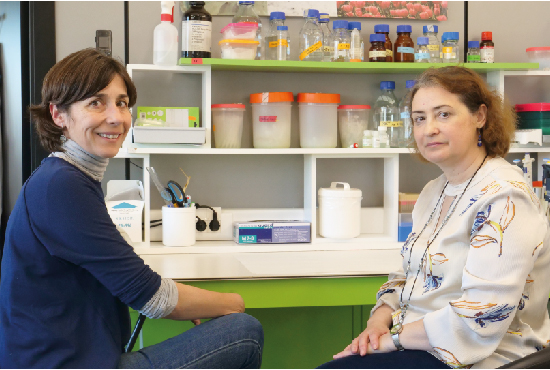
- According to the European Food Safety Authority, this human virus is the main agent of acute gastroenteritis in Europe
- The diagnostic kit, which has been sued by red fruit producers, may be applied to any plant food
The main genogroups of noroviruses that affect humans - IG, GII, GIV, GVIII and GIX - cause acute gastroenteritis. These viruses are resistant to food washing, freezing, and even many heat treatments. Enteric viruses are mainly transmitted by the faecal-oral route and therefore can potentially be present in foods that have been directly contaminated through faecal-contaminated irrigation water.
This quick and easy transmission in vegetables and fresh fruits that are consumed raw or minimally processed and the fact that Spain is one of the largest producers of these plant products, has led the Valencian company ValGenetics, a specialist in pathogen detection and plant health, and the food-borne virus research group (Institute of Agrochemistry and Food Technology (IATA-CSIC)) to work together on the development of a diagnostic kit for the detection and quantification of the three main genotypes of norovirus, initially in strawberries and raspberries.
"Although there is already a European standard that establishes the procedure for detecting the presence of genogroups I and II in different food matrices, there is a growing demand for the detection of multiple norovirus genotypes in a multiplex system", emphasize María R. Albiach, CEO of ValGenetics, and Gloria Sánchez, researcher in the area of microbiological food safety at IATA-CSIC and specialist in the study of foodborne pathogens, mainly human enteric viral agents such as noroviruses and hepatitis A and E viruses.
"This diagnostic kit, which we expect to have ready this year, can be applied to both red fruits and any vegetable food," they say. Furthermore, they add, "our future objective is to continue collaborating in other diagnostic platforms based on state-of-the-art techniques that allow us to characterize the pathogenic viroma of a plant sample in a single reaction; that is, through massive sequencing techniques we can identify all the viruses present in an agro-food sample with diagnostic precision".
Scientific-technological networking
The collaboration between the two researchers arose within the framework of the scientific-technological networking organized last May by the Institute of Agrochemistry and Food Technology of the CSIC and the University of Valencia Science Park Foundation, with the aim of promoting knowledge transfer from research to the production system through innovative companies.

